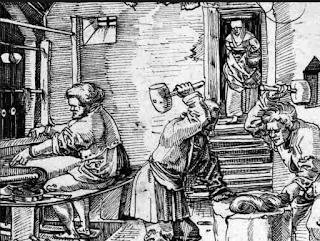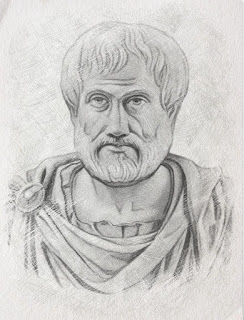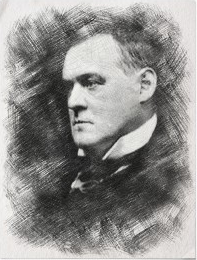As we saw in the previous posting on this subject, there were significant institutional barriers preventing Ebenezer Scrooge from doing the completely right thing by Bob Cratchit and making him a partner instead of a mere employee. For example, anyone who “participated” in any way in a business was considered a part owner, even if he didn’t have legal title to anything. That made him jointly and severally liable for all debts of the business. If the enterprise went belly-up, he could go to debtor’s prison.
Such an arrangement made it highly unlikely that an honest or charitable business owner — and, as we already noted in the first posting on this subject, Scrooge at his worst was strictly honest — was going to allow any employee a say-so in the business, receive a single quarter-farthing of profits or dividends, or be considered as anything other than an independent contractor selling his labor to the business at the market rate of wages . . . which were falling as technology advanced and made human labor redundant.
There was even a suggestion that organized labor was a means of participating in the business, as pay and working conditions were matters for management to decide, not employees. Belonging to a labor union was a very dangerous thing in those days, even if the employer was all in favor of it (although, admittedly, few were). Union members could all go to prison if the company went bankrupt.
 |
| The Guilds were not Unions |
This did not apply to the guilds, of course, which had pretty much disappeared by then, anyway. Guilds were associations of owners, not trade or labor unions. If a guild member went bankrupt, the guild might bail him out, but neither the guild nor its members could be prosecuted if a guildsman could not pay his debts and went to debtor’s prison.
Some people tried to ameliorate this socially unjust system by viewing employees as servants, and thus members of their employers’ domestic society, i.e., families, instead of mere hirelings. The employer was then not a boss, but a master; legally, the status of servants had developed out of slavery, whereas employees were (in theory) freemen. True, Aristotle called the non-owning free worker who owned nothing but his labor a “masterless slave,” but he was legally (although not economically and rarely politically) free.
 |
| Aristotle: Proletariat are masterless slaves |
Thus, where an employee was responsible for his own actions, a servant was presumably acting on the orders of his master. If a master got into debt, no creditor could seize anything belonging to a servant, unless it was deemed to be in the servant’s possession as a way of avoiding having it seized by the creditors.
Dickens seems to have been in this category of social reformer, as he referred to Scrooge as Cratchit’s master. Dicken’s appeared to assume that treating one’s servant-employees more kindly was all that was necessary to reform society.
Still, there had been some very strong voices raised for expanding the ownership base in early nineteenth century England. Most notable was probably the “Radical” politician and journalist, William Cobbett, of whom Dickens would certainly have been aware.
 |
| William Cobbett, "Radical" |
The 1820s saw a number of works by Cobbett. Most notable was A History of the Protestant Reformation in England and Ireland, published as a series of pamphlets from 1824 to 1826, then in book form in two volumes in 1827 and 1829, respectively. The same material, much condensed and adapted, was also covered in The Poor Man’s Friend, a series of pamphlets first published in book form in 1829.
Cobbett’s main theme was the necessity of private property (not socialism) for everyone. As he said,
FREEDOM is not an empty sound; it is not an abstract idea; it is not a thing that nobody can feel. It means, and it means nothing else, the full and quiet enjoyment of your own property. If you have not this; if this be not well secured to you, you may call yourself what you will, but you are a slave. Now, our Catholic forefathers took special care upon this cardinal point. They suffered neither kings nor parliaments to touch their property without cause clearly shown. . . . You may twist the word freedom as long you please; but, at last, it comes to quiet enjoyment of your property, or it comes to nothing. (History of the Protestant Reformation, § 456.)
The necessity of widespread
ownership for a stable society and happy people also pervades what some
consider Cobbett’s greatest book, Rural Rides (1822), as well as Cottage
Economy (1822), Advice to Young Men (1829), and so on. In 1829, deciding that hope of reform in
England was a lost cause, he published The Emigrant’s Guide, urging
people to leave England and go to the United States, where anyone could become
an owner with a modicum of effort. Alexis de Tocqueville made similar observations, but was more interested in the political institutions.
Cobbett had the right idea — expanded capital ownership — but was up against two almost insurmountable barriers that virtually ensured that the desired goal could not be achieved in the England of his and Scrooge’s day, and a few generations later became almost impossible in the United States when the “free” land ran out at the close of the nineteenth century. The first was the fixed belief that it is impossible to acquire and possess private property in capital unless one has access to existing accumulations of savings. The second was the lack of limited liability for business enterprises that made expanding the base of ownership of the new machinery unthinkable.
As a result, Cobbett was perforce locked into an agrarian “small is beautiful” approach, and suspicious of industrial and commercial capital. If someone had access to savings or could scrimp and save over a lifetime to accumulate sufficient savings, it was just barely possible to become an owner of a small business or a little farm.
Due to a flawed financial system, this preference for smallness was carried over into G.K. Chesterton’s and Hilaire Belloc’s distributism; Chesterton considered Cobbett “the Apostle of Distributism.” Smallness is, however, only a preference, as both Chesterton and Belloc made clear. Chesterton made a point of saying that when an enterprise must be large, it should be owned by the workers on shares — and he specified corporate equity shares. As for Belloc, in The Servile State (1912) he declared,
Had property been well distributed [at the start of the Industrial Revolution], protected by co-operative guilds fenced round and supported by custom and by the autonomy of great artisan corporations, those accumulations of wealth, necessary for the launching of each new method of production and for each new perfection of it, would have been discovered in the mass of small owners. Their corporations, their little parcels of wealth combined would have furnished the capitalisation required for the new processes, and men already owners would, as one invention succeeded another, have increased the total wealth of the community without disturbing the balance of distribution. There is no conceivable link in reason or in experience which binds the capitalisation of a new process with the idea of a few employing owners and a mass of employed non-owners working at a wage. Such great discoveries coming in a society like that of the thirteenth century would have blest and enriched mankind. Coming upon the diseased moral conditions of the eighteenth century in this country, they proved a curse.
 |
| Hilaire Belloc |
Belloc made some of the same assumptions as Cobbett — the necessity of capital ownership for a free people (true) and the presumed necessity of accumulated savings (false). He failed, however, to take to take into account the need for limited liability for widespread ownership. It simply did not exist in the eighteenth century in England and for the first half of the nineteenth, except by special act of parliament.
What Belloc simply assumed could have happened had ownership been widely distributed at the start of the Industrial Revolution was the one thing that could not have been done, even had there been sufficient existing savings in people’s hands or had access to money creation powers of the mercantile (commercial) banks backed up by the Bank of England. Widespread ownership of a large enterprise was simply too risky for ordinary people.
Something had to change, and that is what we will look at in the next posting on this subject.
#30#


